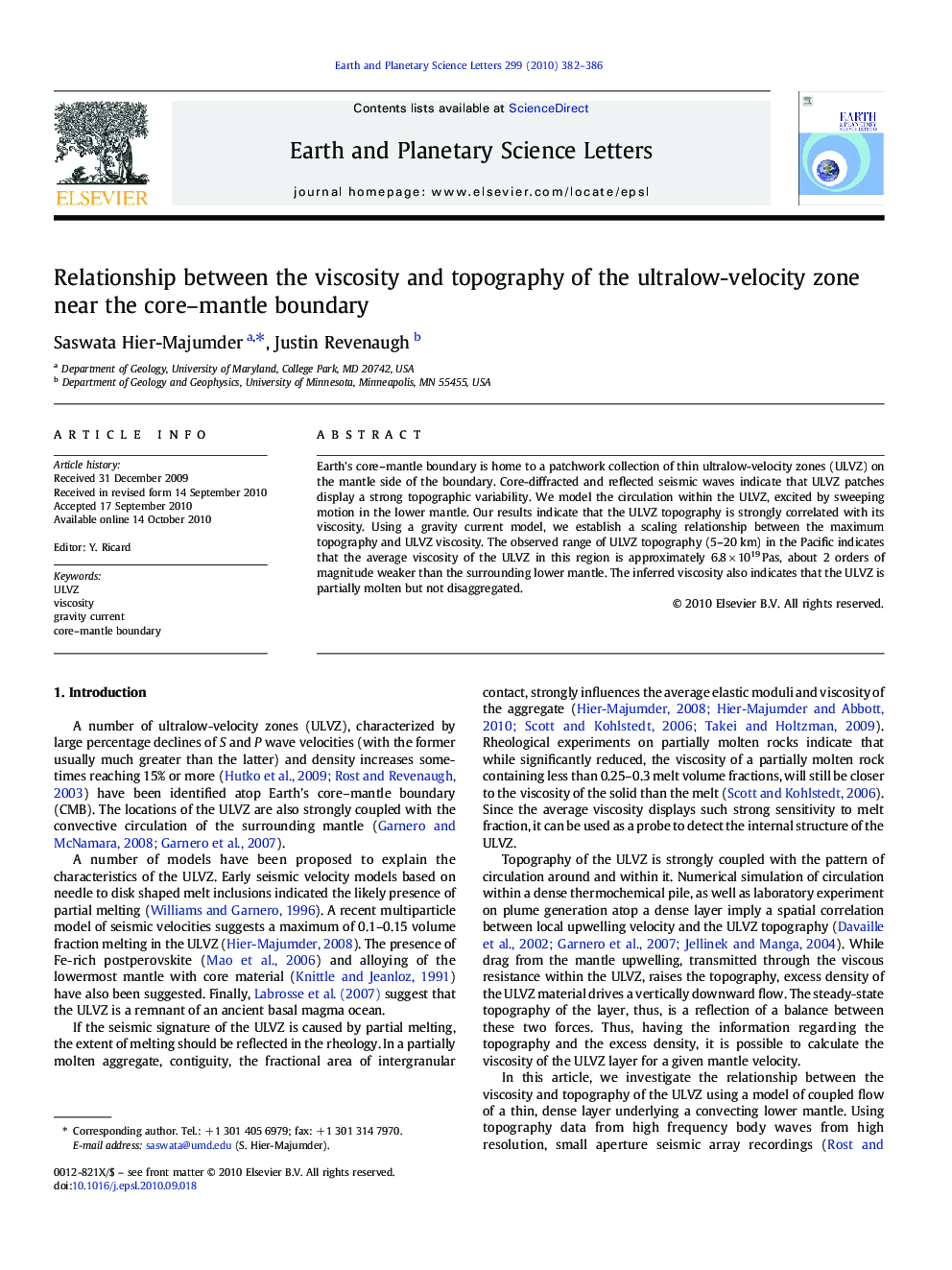| Article ID | Journal | Published Year | Pages | File Type |
|---|---|---|---|---|
| 4678309 | Earth and Planetary Science Letters | 2010 | 5 Pages |
Abstract
Earth's core-mantle boundary is home to a patchwork collection of thin ultralow-velocity zones (ULVZ) on the mantle side of the boundary. Core-diffracted and reflected seismic waves indicate that ULVZ patches display a strong topographic variability. We model the circulation within the ULVZ, excited by sweeping motion in the lower mantle. Our results indicate that the ULVZ topography is strongly correlated with its viscosity. Using a gravity current model, we establish a scaling relationship between the maximum topography and ULVZ viscosity. The observed range of ULVZ topography (5-20Â km) in the Pacific indicates that the average viscosity of the ULVZ in this region is approximately 6.8Â ÃÂ 1019Â Pas, about 2 orders of magnitude weaker than the surrounding lower mantle. The inferred viscosity also indicates that the ULVZ is partially molten but not disaggregated.
Related Topics
Physical Sciences and Engineering
Earth and Planetary Sciences
Earth and Planetary Sciences (General)
Authors
Saswata Hier-Majumder, Justin Revenaugh,
